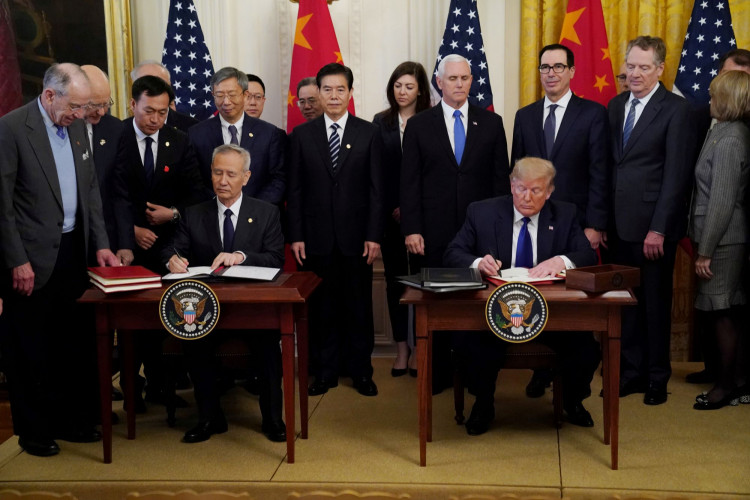The American Chamber of Commerce in China claimed that the China-US relationship might be improved if both would establish a 'competitive neutrality' policy. The geopolitical tensions between the world's strongest economies have been ongoing for years as China continues to strengthen its trade practices and investment policies.
Earlier this year, the China-US trade war came to a halt when both countries agreed to rollback some tariffs. However, the blame game started concerning the pandemic that urged both countries to escalate tensions.
In a 500-page annual white paper, the American Chamber of Commerce in China listed methods that might restore trust between China and the US and stop the downward spiral of their bilateral relations. US President Donald Trump has been restricting US companies from engaging in trade with some Chinese entities entering the American market. The Chamber then raised questions about the effects of the restrictions on the global economy.
The paper read that a policy enacting 'competitive neutrality' between the countries may ease the tensions and remedy the increasing scrutiny in the China-US commercial relationship. Beijing has also expressed its equal treatment of foreign and domestic firms in China and announced that it continues to welcome foreign investments into the country.
The Chamber also manifested its continued struggle of operating in an uncertain business environment in China. Last February, a survey was conducted and revealed that a third of US companies operating in the country have experienced reductions in revenues due to disrupted activity caused by the pandemic.
Nevertheless, China continues to establish updated foreign investment laws and other measures that encourage more influx of money into the Chinese market. However, opaque regulatory processes that favor domestic companies under a state-led development model weaken intellectual property protection. These measures were said to hinder the smooth business operations of US companies in China.
The Chamber also expressed concern about the general nature of the foreign investment law in China. The chairman of the Chamber of Commerce in China Greg Gilligan claimed that previous bilateral dialogues and other governmental mechanisms in China failed to sustain balanced, healthy, and mutually beneficial economic relations between the countries.
In other news, The Hill reported that the Chinese ambassador to the United States Cui Tiankai suggested that China and the US should look beyond the pandemic controversy if it were to improve the foundations of their relationship. US President Donald Trump then responded by saying that he is getting 'tired' of China. The report claimed that Cui might have hinted that he was advocating a return to the arrangements engaged by the US and China before Trump took office.
China expert Henry Kissinger that claimed that the previous policies observed by both countries before the Trump administration was a 'peaceful' method to transition from the US-dominant international order.
Nevertheless, Trump directed the US Navy to resume its functions in monitoring and enforcing freedom of the seas in the Indo-Pacific region. The mandate was said to be more vigorously imposed compared to previous presidents of the US.






